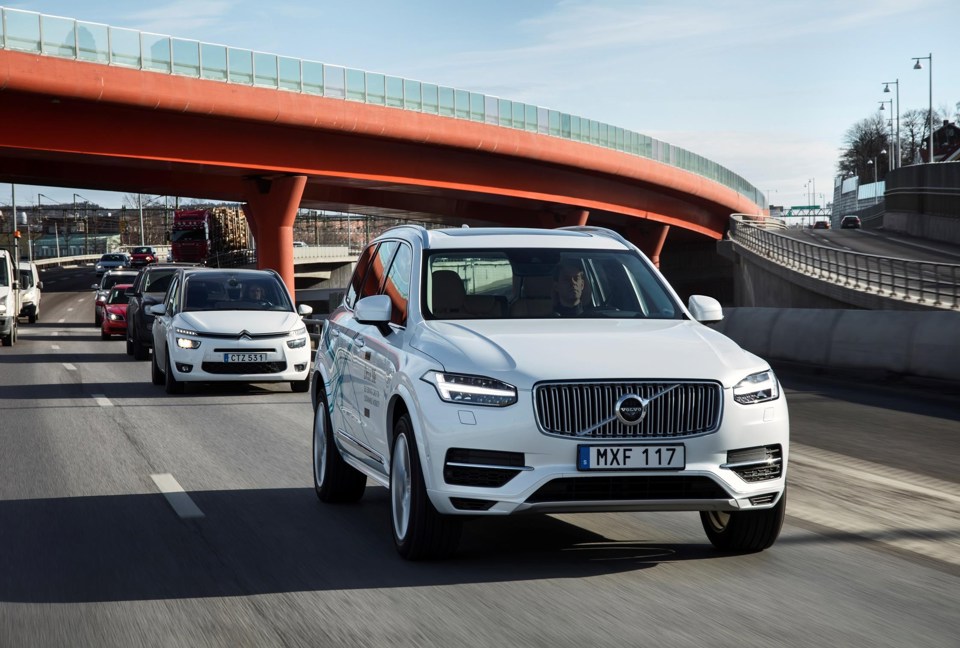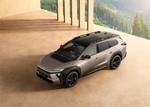Volvo is aiming to redefine ‘premium’ cars in future with electrification and autonomous driving. The company is pursuing both technologies to provide a distinctive and desirable alternative to established premium cars, and believes its credibility in safety will give it a unique proposition.
Håkan Samuelsson, Volvo Cars president and CEO, said: “There are three components to our current strategy. One is renewing our products with SPA (scalable product architecture) and we are mid-way through that process with the V90 Cross Country.
“Another is technology, concerned with individual mobility and with propulsion. We believe in electrification, as that is the best way of achieving sustainable mobility. Currently we sell plug-in hybrid cars, which can travel up to 50km (30 miles) on electric and can be fully charged overnight at home.
“In 2019 we will launch our first electric car, but for this to succeed we need to have a range of 400km (250 miles) and charging in 30 minutes, and we will need partners to ensure the infrastructure is there.
“We have a target of selling a million electric (including PHEV) cars worldwide by 2025. This is important internally, and externally to ensure there are vehicles on the roads and using the infrastructure.”
Volvo currently offers plug-in hybrid versions of the V60 – the first plug-in hybrid diesel to go on sale in the UK – as well as the new XC90, S90 and V90, all of which use a turbocharged four-cylinder petrol engine.
Samuelsson pointed to the success of Tesla in marrying electric propulsion with a premium driving experience, and said Volvo is positioned to capitalise on combining leadership in autonomous vehicles with creating new expectations for a premium car experience.
There will be a bilateral approach from Volvo, supplying Uber with XC90s, in which the taxi company will install its own management systems, while Volvo, in partnership with specialist Autoliv, will supply customers with what Samuelsson describes as a “more emotional experience”.
Autoliv is a leading supplier of safety systems to the automotive industry and has pioneered the development and introduction of active and passive safety technologies to the world’s car makers for more than 60 years.
Samuelsson said: “We will support autonomous driving to increase utilisation of vehicles. Individual mobility where people have a car that isn’t used 95% of the time is not sustainable. And we don’t see the companies that provide everyday cars as a threat.
“We will be moving in two directions. One as a ‘people mover’ partnered with Uber, working with them for a base car, and allowing them to take people from A to B autonomously.
“Additionally, it’s an opportunity for Volvo to create an even more premium car commercially, with even more emotional value. The autopilot function will allow the driver to sit back and relax, and we see that as a commercial product after 2020.
“You can deliver things around a car that understands the driver better. Allowing customers more time to do other things while the car is driven makes the car more premium.”
The Uber model will be automated transport, based on the XC90, with no steering wheel. Autonomous cars Volvo will sell commercially will have a steering wheel, which may retract away from the driver in autonomous mode.
Samuelsson added that Volvo includes safety features that aren’t measured in independent crash tests.
And Volvo is also exploring technology where drivers would be able to select their car as the point of delivery for goods ordered online instead of their home address.
“Homes are more widely distributed than places of work,” said Samuelsson, “which tend to be focused in towns and cities, so delivery companies would also favour the move.”
The delivery company’s system would log the car’s location via GPS, and the delivery driver would be supplied with a single-use code to unlock the car and store the goods securely in the boot.















Login to comment
Comments
No comments have been made yet.